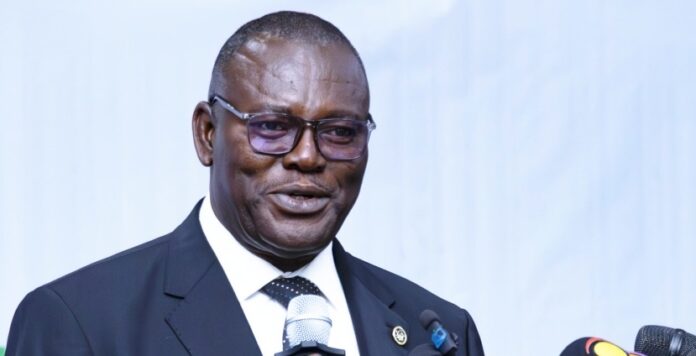Tax expert Professor Abdallah Ali-Nakyea has cast a spotlight on the controversial practice of religious leaders receiving lavish, untaxed gifts.
Professor Ali-Nakyea, an Associate Professor at the University of Ghana School of Law, urged greater scrutiny over the source and tax implications of such offerings, linking them to broader issues of illicit financial flows and accountability.
Speaking at an anti-corruption forum organised by the Media Foundation for West Africa (MFWA) on Thursday, June 26, at the Alisa Hotel, the session was aptly themed: “Hidden Riches, Hollow Laws: Dissecting the Loopholes That Fuel Corruption and Illicit Financial Flows.”
Prof. Ali-Nakyea’s comments resonated deeply with the event’s core objective, pushing the boundaries of the corruption discourse to include less-scrutinised areas.
Addressing the audience, which included religious leaders, he posed a series of provocative questions, highlighting a common scenario:
“You see a reverend, a pastor, well-dressed in a suit and a sleek car,” he said. “The pastor justifies it by saying, ‘I prayed for a member of my church, and he came to thank me with this [car].’”
He then challenged the transparency of such transactions: “Osofo, have you paid gift tax? Have you found out where the money is coming from? If tomorrow you hear he stole, what would you do?”
His interrogation zeroed in on a significant loophole in financial oversight.
While Ghana’s tax laws—such as the Income Tax Act, 2015 (Act 896)—generally focus on taxing income derived from employment or business, the taxation of gifts, particularly large cash or asset donations to individuals or religious bodies, can be ambiguous and often goes untracked.
This lack of clear taxation or rigorous source verification raises serious questions about transparency and potential avenues for illicit financial flows.
Global Financial Integrity estimates that Africa loses between $50 billion and $80 billion annually through illicit financial flows—a significant portion of which goes undetected.
Prof. Ali-Nakyea’s concerns extend beyond tax evasion to the broader fight against corruption.
He urged vigilance within religious communities themselves, stating, “So when we do harvest and people are doling out, let’s shine our eyes.”
This implies that religious bodies, which hold immense influence over Ghana’s population—with over 70% identifying as Christian—have a role to play in ensuring financial probity among their leaders and members.
He also drew a stark parallel to Ghana’s long and often frustrating history with corruption, suggesting the problem has only intensified.
“We have executed corrupt people; it didn’t end. I’m sure today’s corruption is bigger than that,” he lamented.
This historical context underscores the depth of the corruption challenge and the need for fresh approaches to identify and tackle its manifestations, even within areas traditionally considered beyond reproach.
Prof. Ali-Nakyea’s intervention at the MFWA forum serves as a critical call for religious institutions and the public to reconsider the ethical and legal implications of untaxed, unaudited gifts to spiritual leaders.
It challenges the conventional reluctance to scrutinise the finances of religious bodies, advocating for greater transparency as an essential component of Ghana’s broader anti-corruption agenda.
His insights suggest that dissecting “hidden riches” requires looking beyond obvious financial crimes to the often-overlooked channels that may fuel illicit financial flows and undermine national development.


